
HBO's Watchmen is easily the network's most successful show since Game of Thrones. The series managed to expand the universe of Alan Moore and Dave Gibbons' original graphic novel and, by extension, the iconic characters within. On top of all that, it effortlessly weaves real moments in American history into the fictional fabric of its storyline. Executive Producer Damon Lindelof's decisions to place this new story in Tulsa, Oklahoma, and make the real-life events that occurred there in 1921 the cornerstone of the season were calculated risks that led to a groundbreaking achievement.
Lindelof first learned about this buried past in Ta-Nehisi Coates' seminal 2014 essay in The Atlantic entitled The Case for Reparations. He credits Coates' work as well as Tim Madigan's The Burning with opening his eyes to a devastating moment in America's history. From that moment on, the executive producer was determined to bring Tulsa's real-life story to the masses.
Ironically, the vehicle for that mission turned out to be an adaptation of the fictional Watchmen comic book series from DC. The result was one of the most riveting and compelling series in television history.
SYFY WIRE took a closer look at HBO's Watchmen and found there were many easter egg moments in Black History hiding in plain sight. (Dr. Manhattan would be proud!)
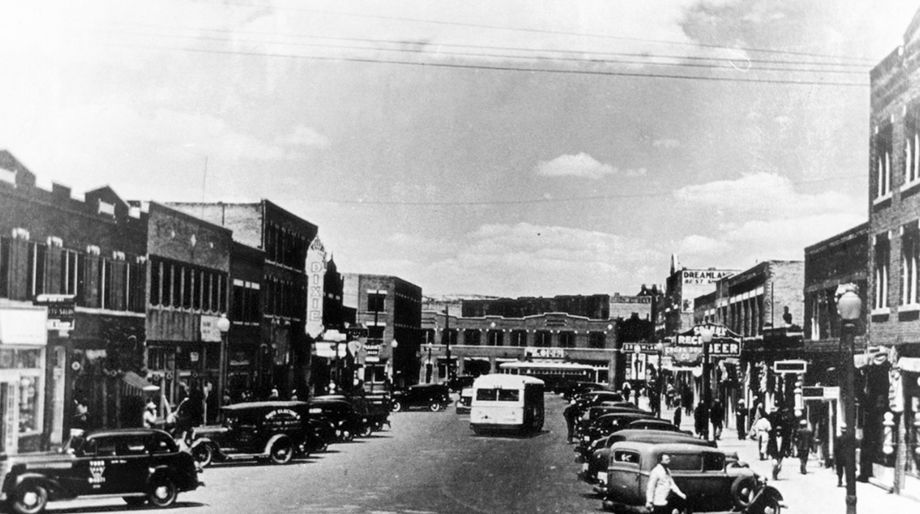
Watchmen:
"Black Wall Street" or the Greenwood section of Tulsa, Oklahoma, is only seen being destroyed in the first episode, when some business owners gathered to try to escape the chaos. We never get to see what the area looked like when it was thriving.

History:
In 1906 a wealthy Black landowner named O.W. Gurley purchased 40 acres of land on "Developed Indian Territory," in what is now a portion of Tulsa, Oklahoma. He called it Greenwood after the town in Mississippi and declared that the area was "for coloreds only," since there were so few places in the country post-Civil War where Black Americans were allowed to live and work.
Gurley and his business partner J.B. Stradford are credited with much of Greenwood's success, providing jobs and loans to anyone who wanted to start businesses in the area. By 1921, the area boasted a hospital, bank, churches, schools, law offices, movie theaters, taxi services, post office, and printing press. Greenwood became a haven for Black Americans and, within a very short amount of time, one of the wealthiest areas in the country.
Greenwood earned its nickname, "Black Wall Street," because the majority of the country's wealthiest Black citizens lived there. Historians state that $1 spent in Greenwood would change hands 19 times before it left the area.
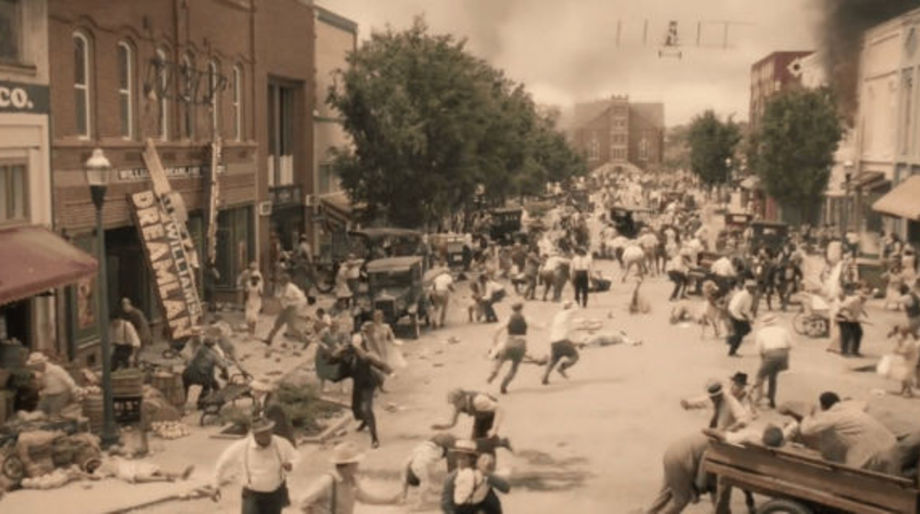
Watchmen:
The first episode of HBO's Watchmen depicts the Black citizens of Greenwood being murdered and tortured by an angry mob. White men are seen looting stores and homes, and shooting people in the street. In a desperate effort to save his life, young Will’s parents pin a note to his chest and hide him in a horse-drawn cart headed out of the city. The last thing Will sees of Tulsa is the building his parents are in being bombed from the sky.
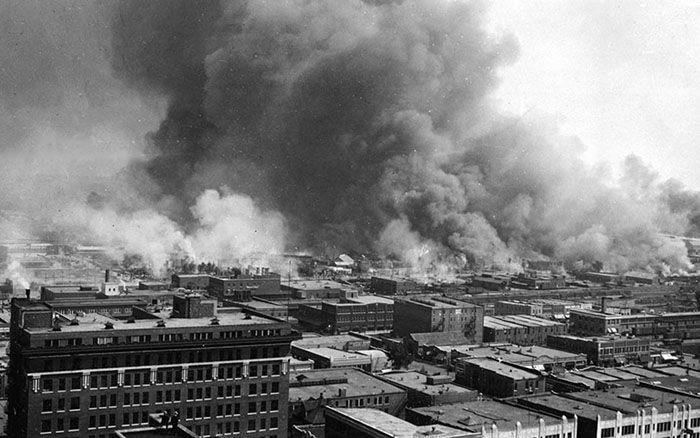
History:
On May 30, 1921, Dick Rowland, a Black teen working as a shoeshine on Main Street in Tulsa, was on his way to the segregated restroom on the top floor of the Drexel Building. Rowland lost his balance — some say he tripped on his way into the elevator — and reached out to steady himself and accidentally grabbed the arm of 17-year-old Sarah Paige, a white elevator operator.
Despite Paige refusing to press charges, Rowland was arrested for "sexually assaulting her."
As angry White residents stormed the courthouse demanding the sheriff hand over the teen, several of the black residents took up arms to protect him. Twelve people died at the courthouse that day, ten white men and two Black.
In retaliation, over the next two days, mobs of white Tulsans attacked the black residents. By June 1, over 35 blocks of the city had been destroyed by land and by private aircraft. Over 200 businesses were gone, approximately 6,000 Black residents had been arrested or detained, 10,000 were left homeless and over 800 hospitalized with over 300 presumed dead. An accurate count was never recorded.
Some 20 years before Pearl Harbor, the Tulsa Massacre is the first incident of bombs dropped on U.S. soil and is still considered the worst act of racial violence in U.S. history.

Watchmen:
In the opening scenes of Watchmen, little Will is sitting and watching a silent movie. Nearby, his mother plays the piano, trying her best to drown out the sounds of the massacre happening in the street and filtering through the theater doors. Later in the episode, a fictional rebuilt exterior of The Dreamland can be seen and inside, Judd Crawford and his wife are seen watching an all-Black musical revue of Oklahoma!
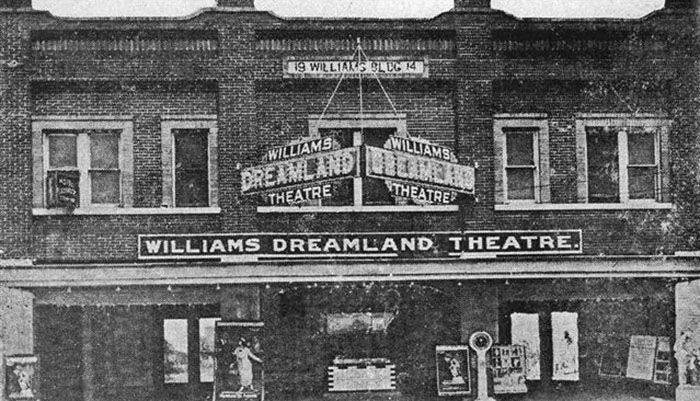
History:
The Williams Dreamland Theater was a real theater in Tulsa that opened in 1914 on Greenwood Avenue in Tulsa. One of many businesses owned and operated by husband and wife proprietors John Wesley and Loula Tom Williams, the Dreamland was a pillar of the Greenwood community and featured musicals, plays and silent movies.
The theater was rebuilt after it was burned to the ground during the Tulsa Race Massacre. Although the Williams family recovered financially (they owned other venues in other parts of Oklahoma), "Black Wall Street" was never the same and The Dreamland struggled to keep its doors open. The space was sold in 1927. The modern facade of the theater depicted in the show was built on a set.
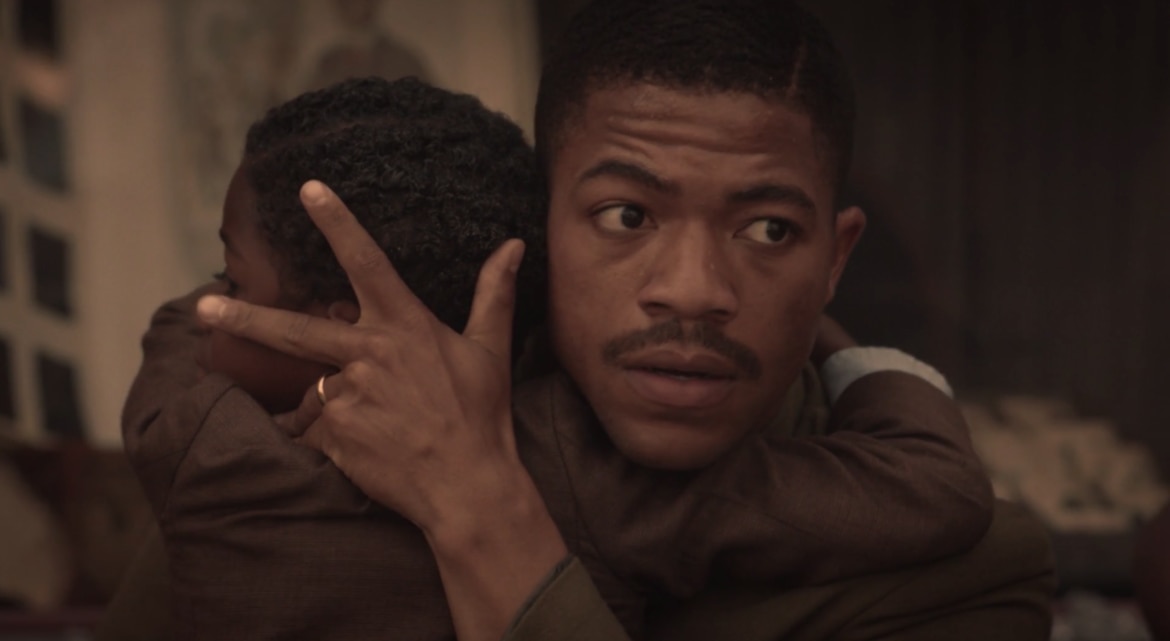
O.B. Mann and John Wesley Williams:
On the show, young Will's father is a WWI veteran named O.B. Williams. We're pretty sure Lindelof combined the names of John Wesley Williams and Tulsa storeowner and WWI veteran, O.B. Mann. Mann's Grocery was one of the most successful businesses in the area and by all accounts, he was one of several men who went to the courthouse to save young Dick Rowland from a lynch mob. When Mann was fighting over his shotgun with a white man, he allegedly accidentally fired the first shot that sparked the massacre in 1921.
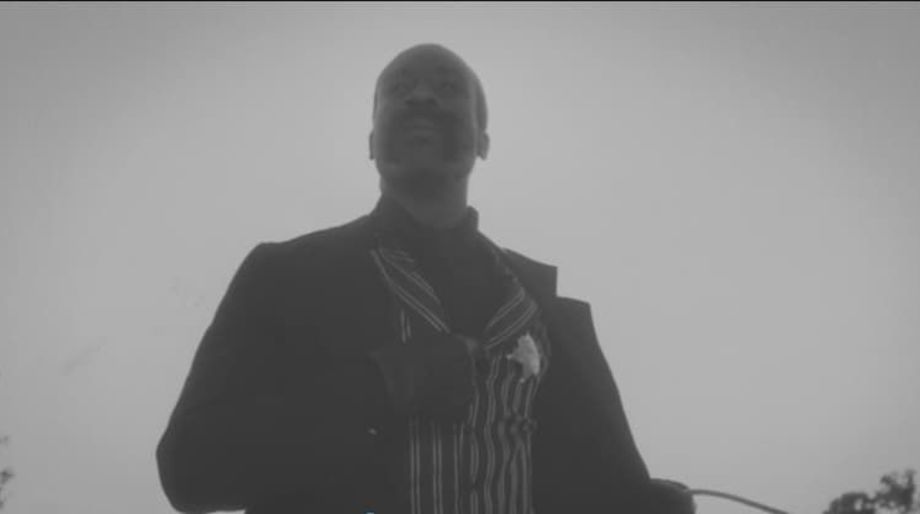
Watchmen:
In the film that Will is watching at the beginning of the first episode, a man dressed in a black, hooded long coat apprehends a corrupt Sheriff. The cloaked man reveals himself as Deputy Marshall Bass Reeves (played by actor Jamal Akakpo). Having lost both of his parents to the Tulsa Massacre, Will was inspired to take his hero's surname.
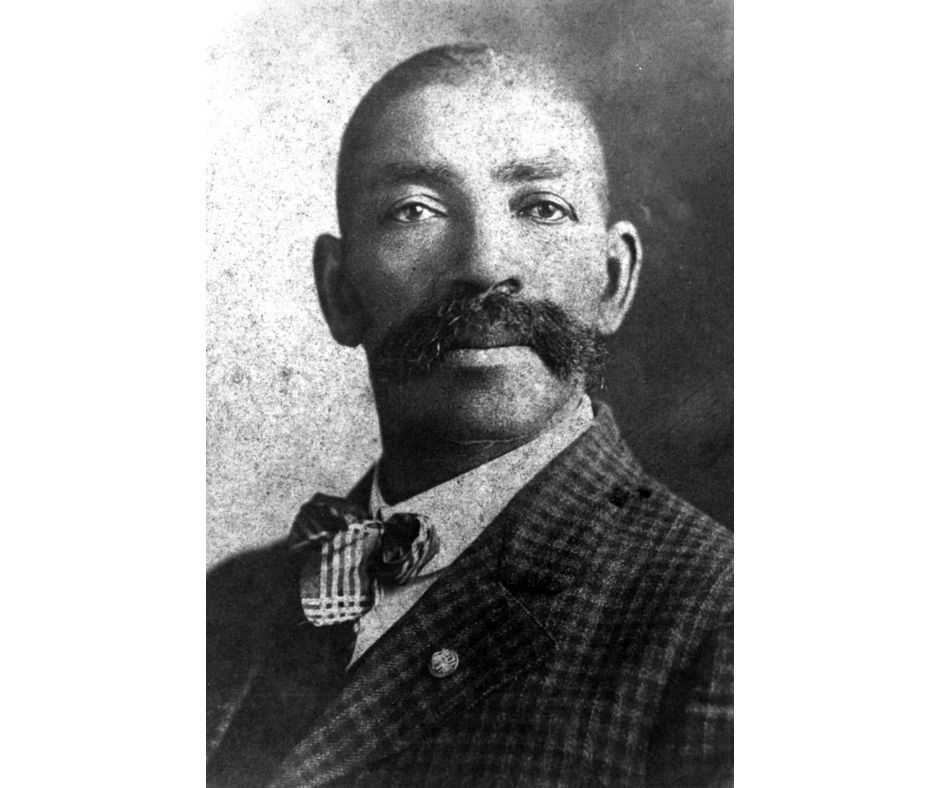
History:
Bass Reeves was indeed a real Deputy Marshall of the Oklahoma Territories and the first African American to hold that title west of the Mississippi. He was born a slave in 1838 to master William S. Reeves, but after Reeves' death, Bass became the valet and bodyguard to his son George. When the Civil War broke out, George Reeves brought Bass along with him to fight with the Confederacy. However, the two soon parted ways after a fight. Bass sought refuge in "Indian Territory" (modern-day Oklahoma) among the First Nations people located there.
He stayed hidden until slavery was outlawed and married and settled in West Arkansas with his family — until the newly appointed U.S. Marshall James S. Fagan came calling. Tasked with finding and selecting 200 deputies in the area, Fagan didn't hesitate to deputize Bass. Not only had Bass Reeves earned himself a reputation for being an ambidextrous sharpshooter, but he was multilingual in several First Nations languages.
Responsible for a 75,000-square-mile area that today crosses most of Oklahoma and Arkansas, Bass Reeves was known for always clearing his warrants, dead or alive. By the time Reeves retired in 1907, he had killed 14 outlaws and apprehended more than 3,000, (including one of his own sons). As a result of his incredible history, he is often referred to as the real "Lone Ranger."
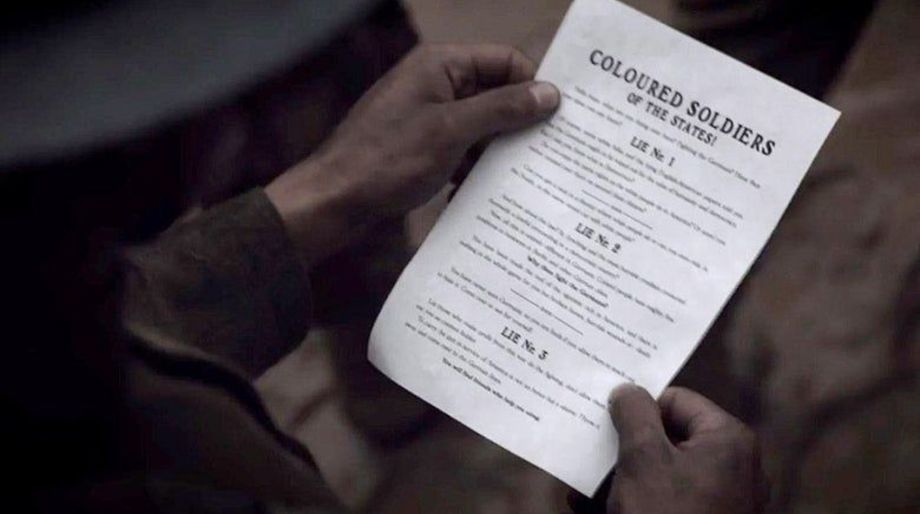
Watchmen:
In Episode 2, a German dictates a letter to a secretary that would eventually drop over Black troops by air. Will’s father, O.B., is seen marching with other soldiers as he reads the propaganda material. The flyer asks why "Black American troops are fighting the Germans, being that they have no rights or liberties at home in the United States?"
Through voiceover, we hear O.B., little Will, and then grown-up Will (played by Lou Gossett, Jr.) read the contents of the flyer aloud. The propaganda flyer is the only keepsake that Will has of his parents. His father quickly wrote on the back of it "Watch Over this boy" and pinned it to his son in desperation before he put him on the wagon alone, an act that would ultimately save his life. Will still holds onto the flyer in the present day.
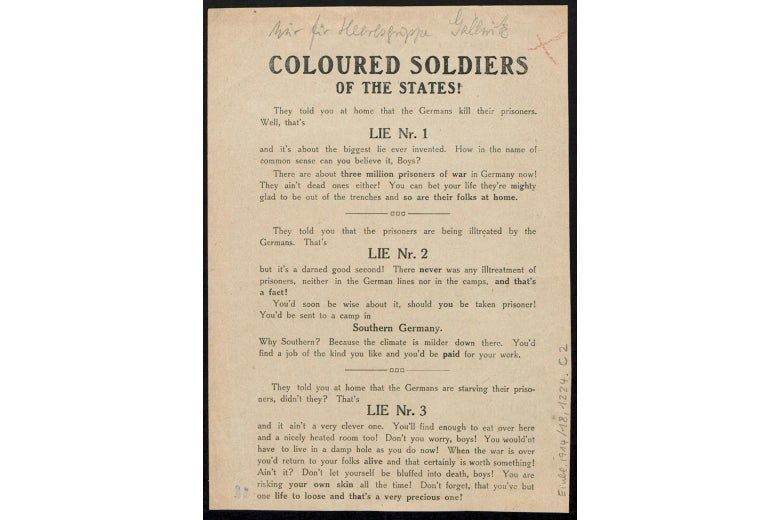
History:
The document that Will's father is holding is a replica of real propaganda used during the war that specifically targeted Black troops, imploring them to surrender to Germany and promising them better lives than they had in America. At the time, African Americans were subjected to Jim Crow laws at home while Black troops were often treated equally as bad in the military. (As evidenced by O.B. being spat on by a white soldier on horseback as he rides by.)
In WWI, the German military often tried to fan the flames of racial tension, exploiting fragile racial relations between segregated American troops on German soil.

Watchmen:
In Episode 2, Angela visits the Greenwood Center for Cultural Heritage and uses a kiosk featuring United States Treasury Secretary Henry Louis Gates Jr. She drops off Will’s DNA sample to find out if he was ever a resident of Tulsa. In Episode 4, Angela revisits the center to find out how Will is related to her by using a “virtual family tree” the system provides.
History:
The real center is called The Greenwood Cultural Center and was built around 1989; it's located on Oklahoma State University's campus in Tulsa. The center is dedicated to recovering and preserving the history lost in 1921. The center is a non-profit and does not sport the tech that the Watchmen Center boasts.
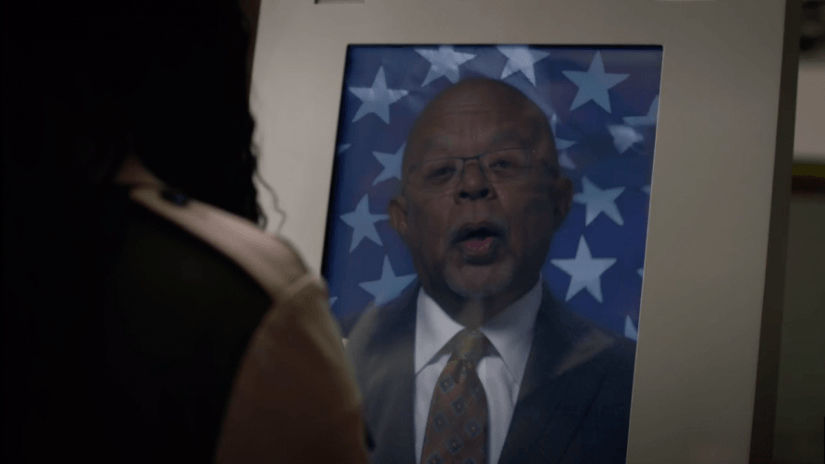
Although Henry Louis Gates, Jr. has never held public office, he is a writer, critic, teacher, historian, and Emmy Award-winning filmmaker. He is currently the Director of the Hutchins Center for African and African-American Research at Harvard University. He has co-authored 24 books and created 21 documentaries about the Black experience in America. This includes African American Lives, a show that used genealogy to trace the ancestry of famous African-Americans.
Gates is considered one of the leading experts on African-American literature; he holds 55 honorary degrees and was one of the first to ever receive a McArthur Foundation Genius Grant.
He was really excited to have been a part of the show.
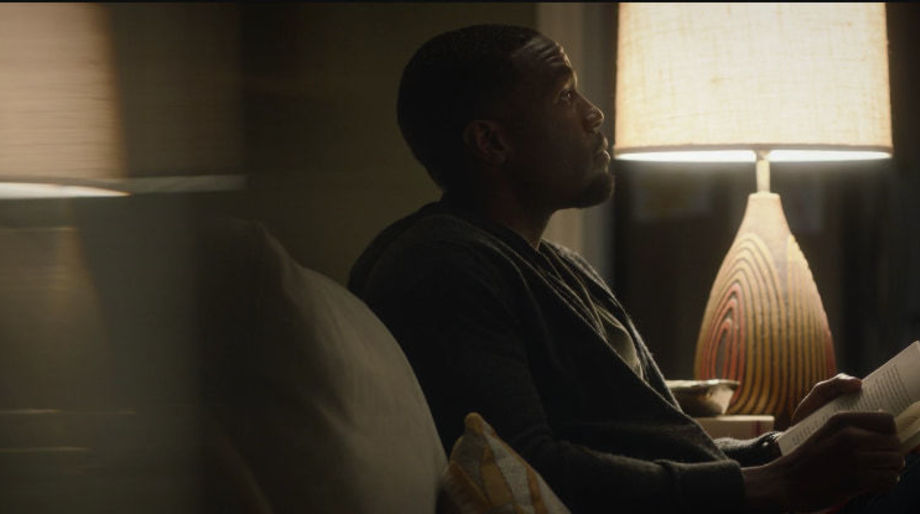
Watchmen:
The title of Episode 4, "If You Don't Like My Story Write Your Own," is a passage from a book called Things Fall Apart. Cal Abar (played by Yahya Abdul-Mateen II) is reading a copy of the book when Angela comes home and spoils the ending of the book by telling him that the main character hangs himself in the end in a futile attempt to start an argument. Cal is unfazed. (Much later, of course, we figure out why.)
History:
Things Fall Apart is a real book published in 1958 by the late celebrated African author Chinua Achebe. The story is a piece of historical fiction that takes place in the 1890s and centers around a Nigerian village elder and wrestler named Okonkwo, whose family and entire way of life are slowly but dramatically being altered by British colonialism and the forcing of Christianity on his people.
Everything he does is met with resistance. In the end, he hangs himself out of desperation because his own country is foreign to him and he no longer has a home. The story serves as an authoritative commentary on the destructive effects of colonialism and the erasure of indigenous culture.
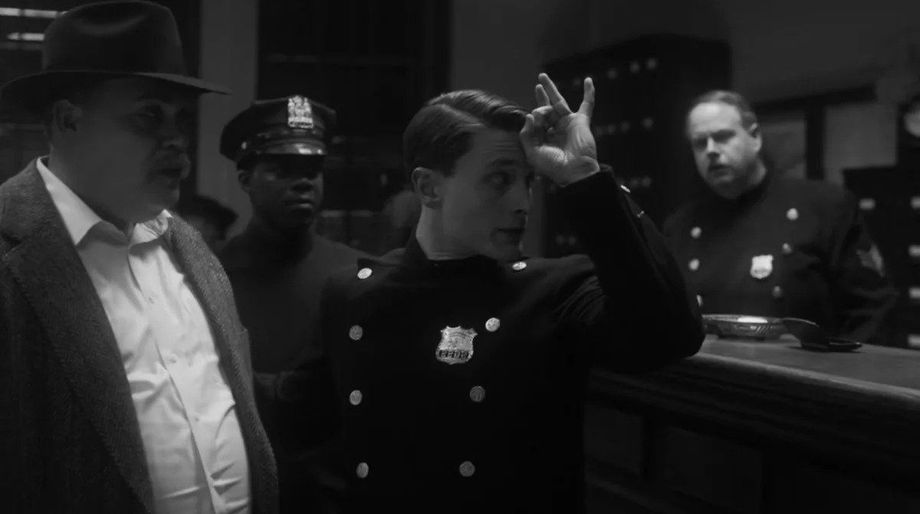
Watchmen:
In the mythology of the show, the KKK-adjacent group Cyclops is the enemy. It's a secret white supremacist terrorist group that uses technology, including mind control devices, to instigate racial violence between Americans to suit its agenda. When Angela Abar downs a bottle of her grandfather Will Reeves' "Nostalgia" pills, she is dropped into a catatonic state as she begins to experience moments of his life. One of those moments is when her grandfather graduated from the New York Police Academy, and a Black Captain whispers "Beware the Cyclops" to Will at his graduation.
Members of Cyclops appear to be responsible for lynching (but not killing) Will and inadvertently creating the first superhero in the Watchmen Universe, "Hooded Justice." (In the comics this character's true identity is never revealed).
The 7th Calvary seems to be an updated version of this terrorist organization and Jane and Judd Crawford, along with Joe Keene and his father John David Keene, are all members. The Cyclops image (below) can be seen behind Laurie as she is held captive.
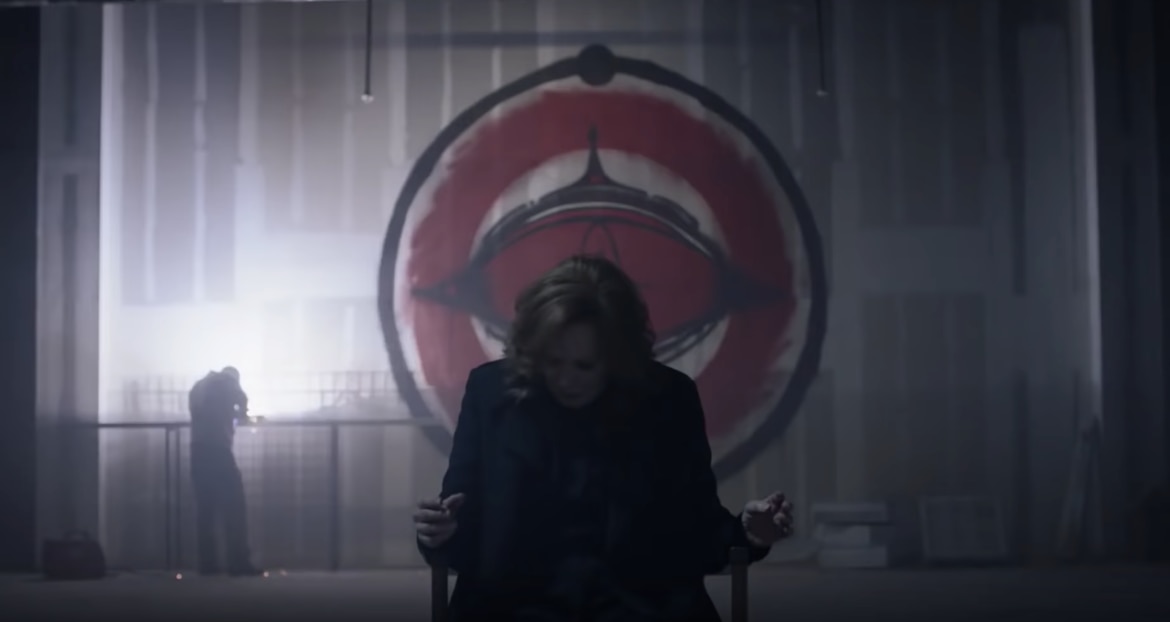
History:
Cyclops is a real term used by the real-life KKK. After 1915 the chief officer of a local Klan chapter was referred to as an "Exalted Cyclops" and the subordinates are called the "Twelve Terrors."
Contributed by Karama Horne
